Connecting to the future:No Guaranteed Success in Business, but Diverse Experience Can Lead to Growth
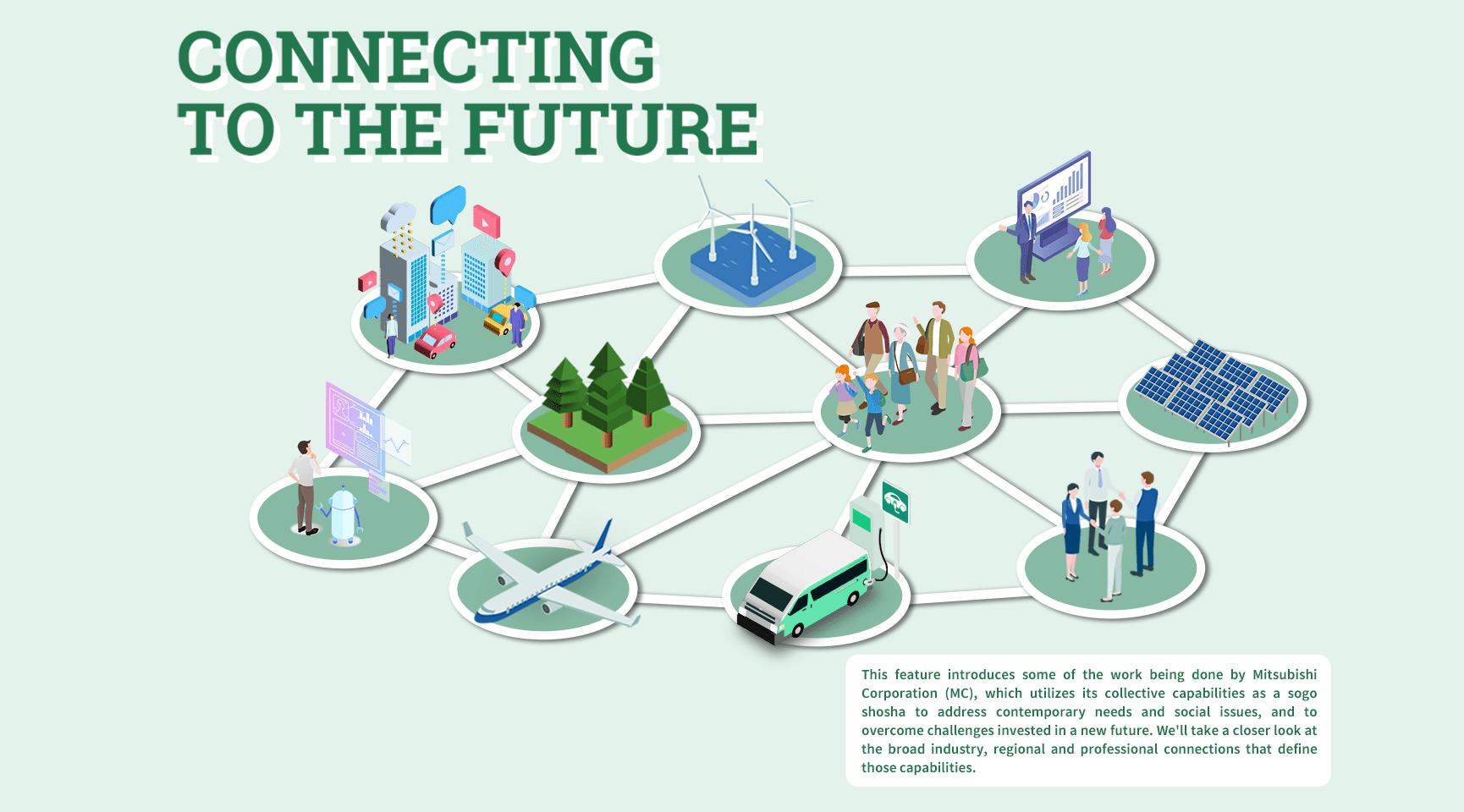
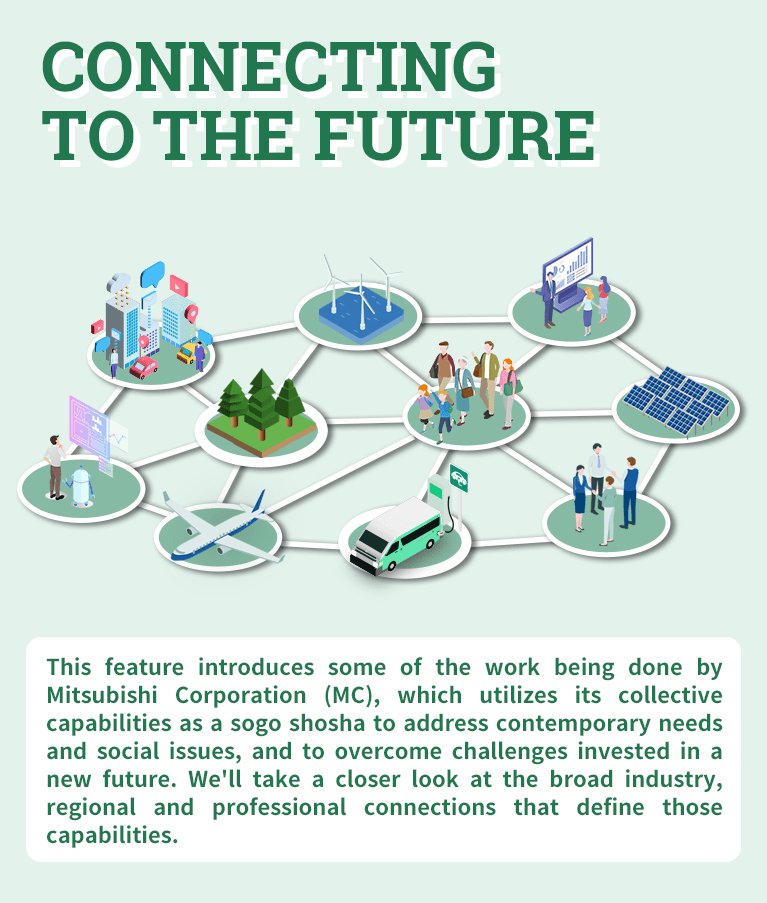
Building the Future with Diverse Talent vol.3
No Guaranteed Success in Business, but Diverse Experience Can Lead to Growth
— Roundtable Discussion with Members of Mineral Resources Group (Second half) —
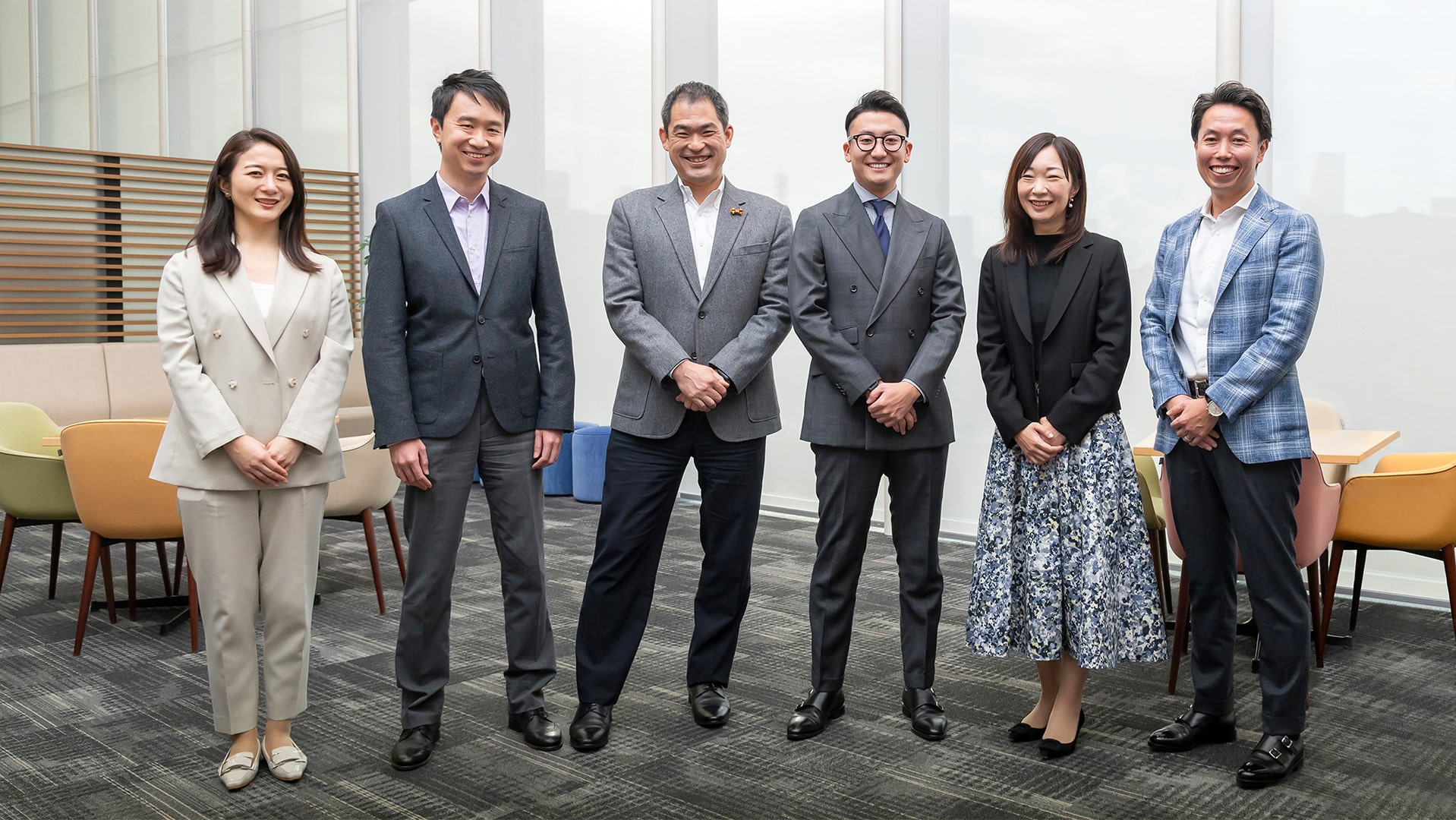
In part three of our latest feature, we present the second half of our roundtable discussion with members of MC's Mineral Resources Group. How did the company's young employees cope during the pandemic? How have those with children been balancing their work and childcare responsibilities? Why are so many people with different backgrounds able to work so comfortably with one another? Six employees share their professional hopes and aspirations. Interviewer: Kazuhiro Sekine (GLOBE+ Editor in Chief)
- Roundtable Participants
-
Kentaro Kanno (GM, RtM Office, Mineral Resources Trading Div.)
Yusuke Inomata (Deputy GM, Aluminum Dept., Mineral Resources Investment Div.)
Shu Deng (Deputy GM, Business Incubation Unit, Mineral Resources Group CEO Office)
Miho Fujii (Senior Manager, seconded from MC to Mitsubishi Corporation RtM Japan, Battery & Mobility Business Div.)
Akiko Kamachi (Manager, Base Metals Dept., Mineral Resources Investment Div.)
Tomoki Makanae (Strategic Planning & Administration Team/ Metallurgical Coal Team, MDP Dept., Mineral Resources Investment Div.)
- Interviewer
- Kazuhiro Sekine (GLOBE+ Editor in Chief)
Diverse Individuality Creates Strong Organizations
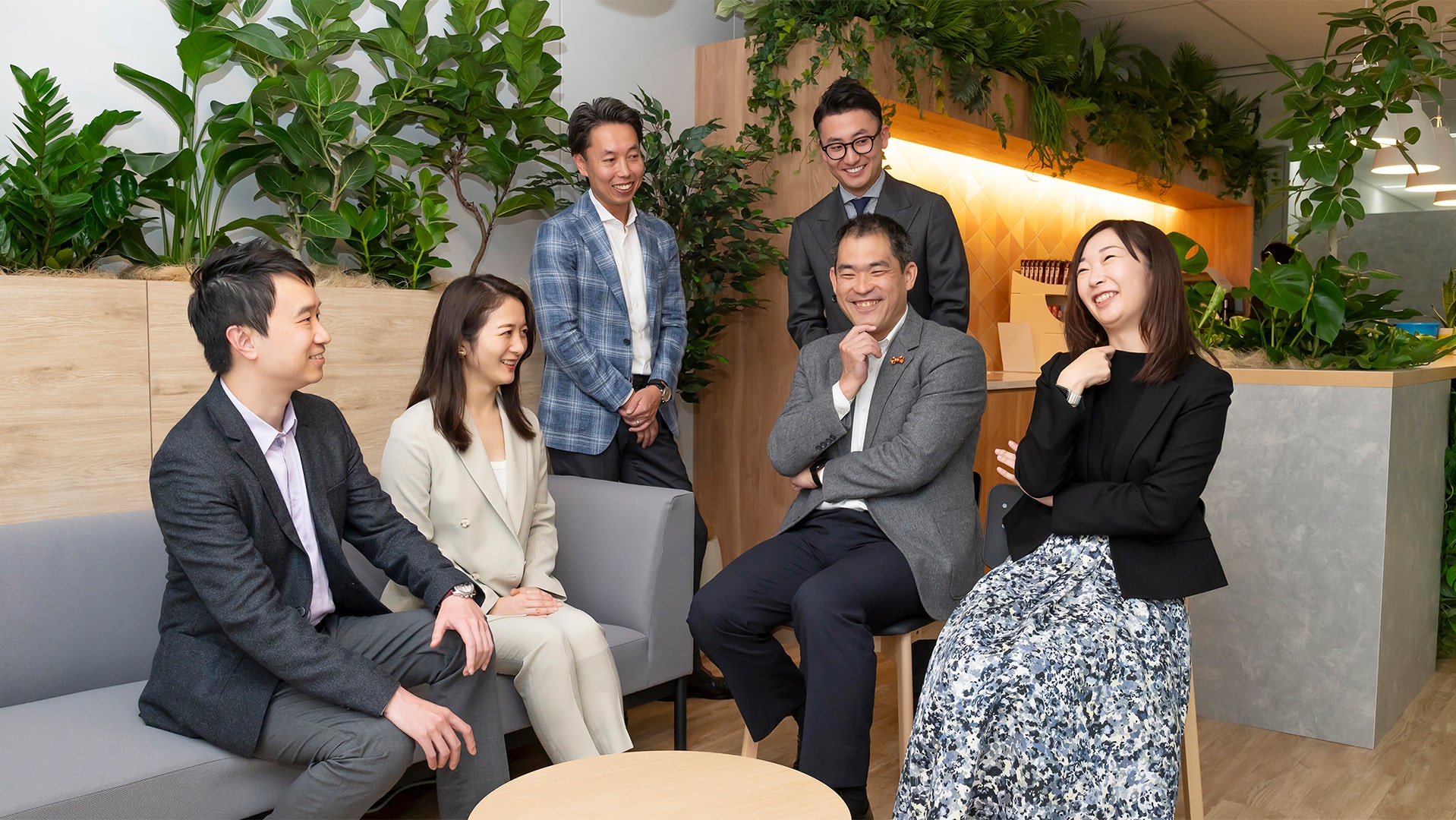
Back row (from left): Yusuke Inomata, Tomoki Makanae
—— During the first half of our discussion, you all spoke about effective teamwork with your business partners, whether they be fellow members of the MC family or outside parties. I was impressed by what you told me, but what are your personal thoughts on teamwork?
Deng Our group is engaged in global resources development and investment, so our operations span a huge number of people and a worldwide network. We have offices in places like Chile, Australia and London, and our businesses require specialists in many different fields, such as finance, law, engineering and geology. So for us, it feels perfectly natural to be working with people from different countries, regions, cultures and career backgrounds. I think teamwork is the very essence of the Mineral Resource Group's business. Inomata I think so too. In resources, there's almost no work that can be done by just one person. Success or failure comes down to creating solidarity among specialists. I think our group's strength is that its atmosphere encourages communication. We feel confident and comfortable approaching one another because we know which people are experts in which areas. Our company is often talked about from the context of "MC as an organization," but no organization will have stability or quality output if it's employees are all cut from the same cloth. Our workforce diversity is precisely why we have such organic connectivity. It's the resulting synergies that enable MC to perform so well as an organization.
Why Are MC Employees Able to Enjoy Balancing Work and Childcare?
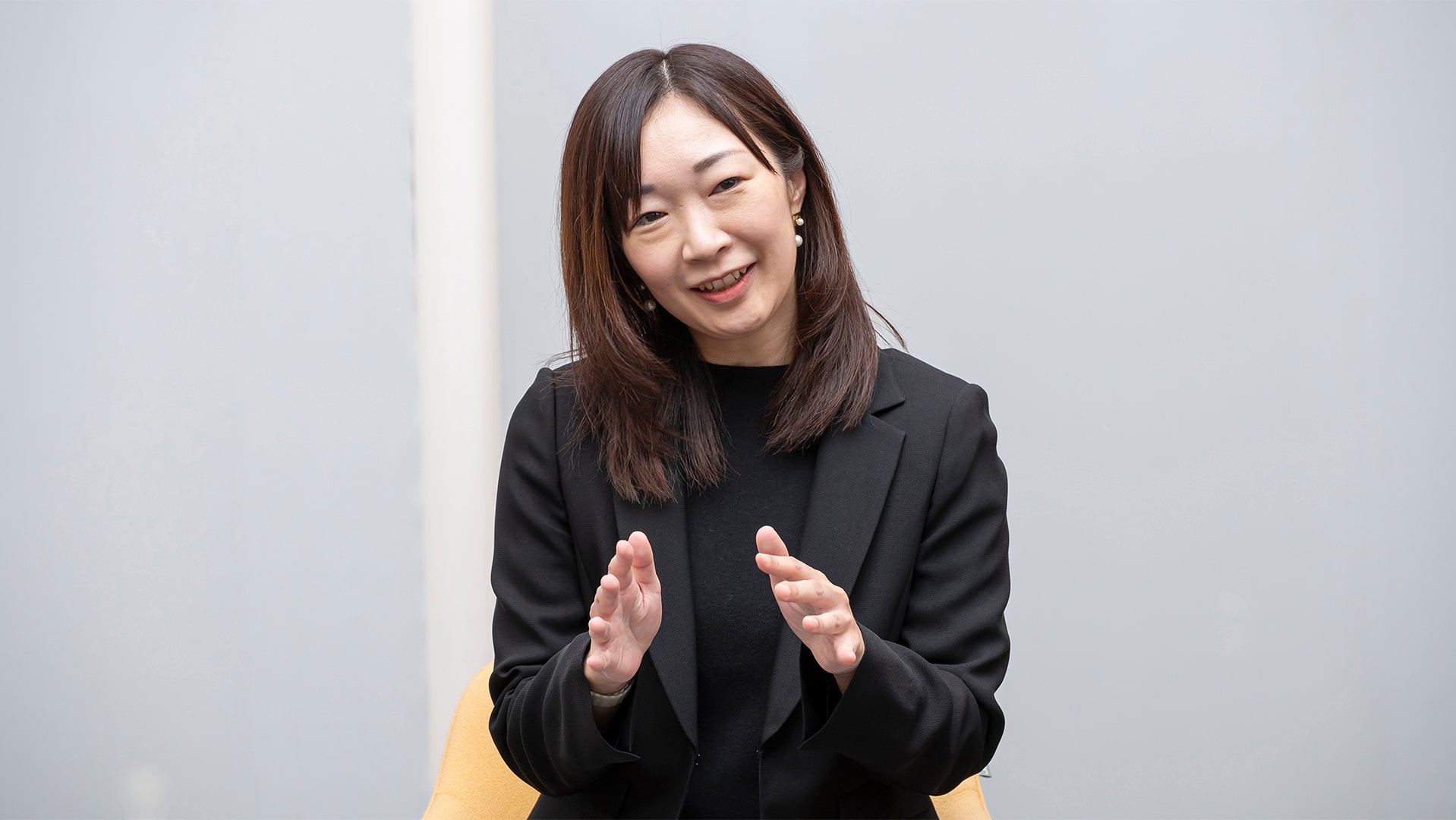
—— Ms. Fuji, you returned to work four years ago after taking time off for childcare and other reasons. How has it been for you, having to balance those family responsibilities with your career?
Fuji Every working day, I am reminded of how much the company understands my situation and is willing to support me. I have two children, ages nine and six, so I still have to drop them off and pick them up from school. It's also difficult to prepare for last-minute business trips, and when I do go away, I have to make a lot of arrangements ahead of time. Fortunately though, my boss and coworkers all understand my need for flexibility, meaning that I can incorporate my family responsibilties into my working style and schedule without having to feel guilty about inconveniencing anyone. I think the fact that employees like me can do this is indicative of both the changing times and the commitment that MC is demonstrating towards welcoming and strengthening diversity. Also, since the pandemic I've been doing a lot of work from home, which has made balancing my career and childcare responsibilities a lot easier. Plus, by taking full advantage of MC's services for assisting families, arranging baby sitters, and so on, I've been able to do some very rewarding work at the office as well. I'm grateful to my children for supporting their working mom, and I think it's important for me to adopt a well-balanced working style that doesn't cause me to overexert myself. There are other employees at RtM Japan who are balancing childcare responsibilities. They are both women and men, and they come from different countries and backgrounds. I think the company is one of MC's organizations that truly embody its commitment to diversity, equity and inclusion.* *MC is working harder to encourage diversity in its workforce and doing more to ensure that all of its employees are treated fairly and given equal opportunities. Kanno That's likely because the organization employs people from diverse backgrounds and is flexible in accommodating their needs, so long as they continue to perform at a high level. It's nothing like the way Japanese companies used to be, where there was this unwritten rule that you couldn't go home before your boss did.
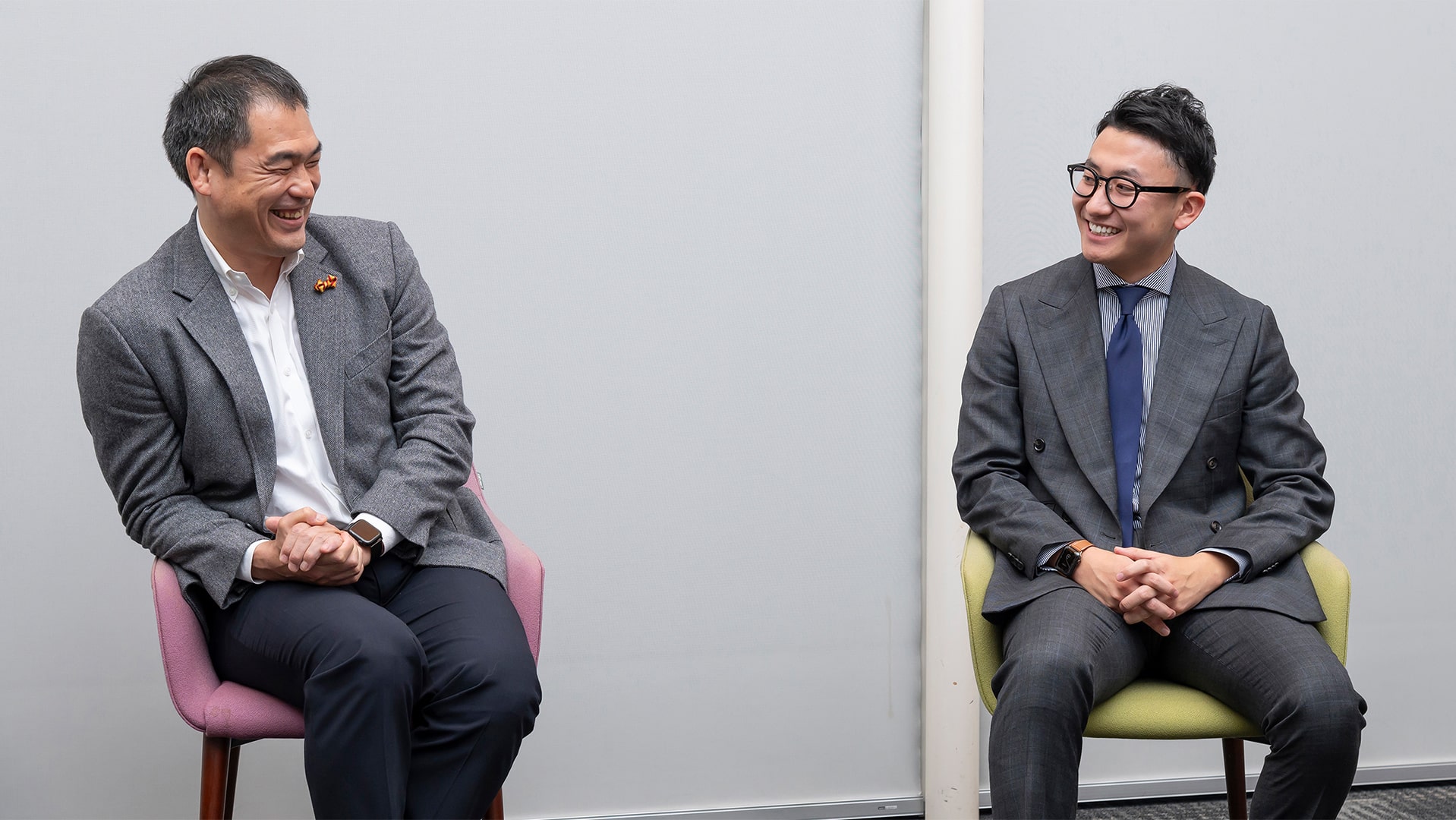
——There are roughly 600 people employed by the Mineral Resources Trading Division, both in Japan and around the world. Mr. Kanno, as someone who holds an important post in that division, how do you get its people working with the kind of vibrancy and dynamism that MC is shooting for?
Kanno In addition to its management training, which is always updated to ensure that it's in keeping with the times, MC offers a wide range of HR programs, including its global trainee program to equip employees with international experience, and programs designed to improve IT literacy, promote career autonomy, and so on. Personally, I don't want today's young employees to go through any of the things that I thought were absurd when I was young. Another thing I've been more cognizant about recently is speaking to people directly. Our mineral resources trading operations aren't confined to Tokyo. We work with staff in many locations around the world, including Singapore, New York, London, Shanghai and India, and those staff include both Japanese employees on secondments and locally hired employees. When I get a chance to visit those places on business, I always make sure to set aside as much time as possible to speak with everyone one on one, so that I can hear their concerns and opinions. We enjoy the good news and worry about the bad, but we do that together. That I have something I can say to them or advise them on is precisely because they're neither my direct superiors nor colleagues, but rather people I only get the chance to meet occasionally.
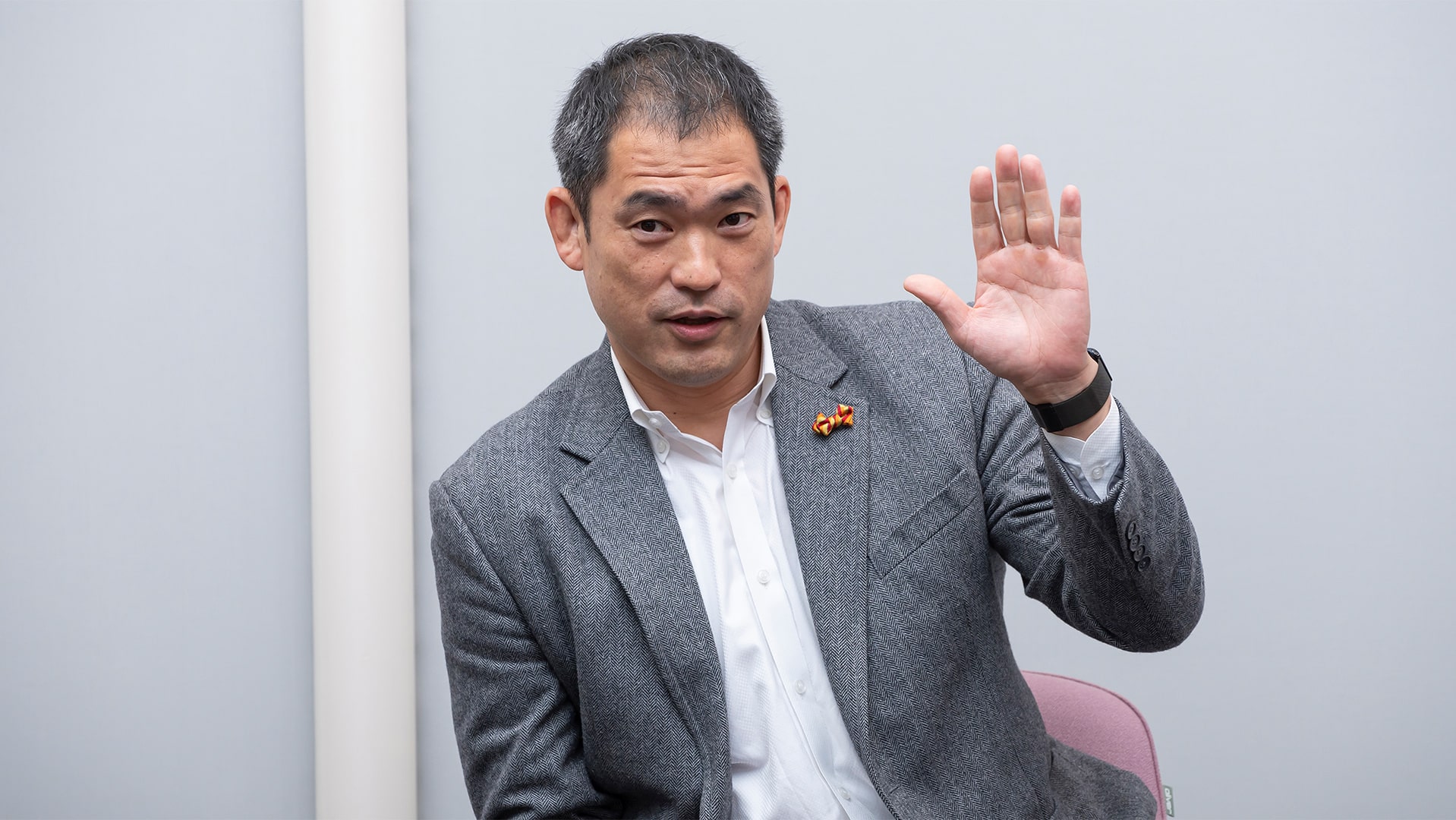
——I guess it can't be easy to earn trust that transcends nationalities and generations.
Kanno When I was young and working on steel products, I learned a lot from wholesalers of my parents' generation, and after moving to mineral resources, I worked with many people with different nationalities, cultures and backgrounds. They included hardworking businesspeople like representatives of the resource majors (international capitalists who seize the initiative), lawyers, accountants and investment bankers, veteran coal miners in Australia, the president of a project owner in India, and officers of state-run entities in China. What I learned from those encounters is that regardless of things like nationality, position or background, the processes of opening up to one another and building trust-based relationships is the same. It starts by breaking the ice with conversations about things that aren't related to work, such as our families, sports, or even just silly banter. For example, when I was in India, I really boned up on cricket, so that I could chat more casually with my colleagues and endear myself to them a bit. At times, I also consult with my junior colleagues about my concerns. These techniques can help the people you're working with get to know the real you, the person behind the suit, and I think that's the first step towards bonding with them.
Organizational Climates that Encourage Young Employees to Relax and Thrive
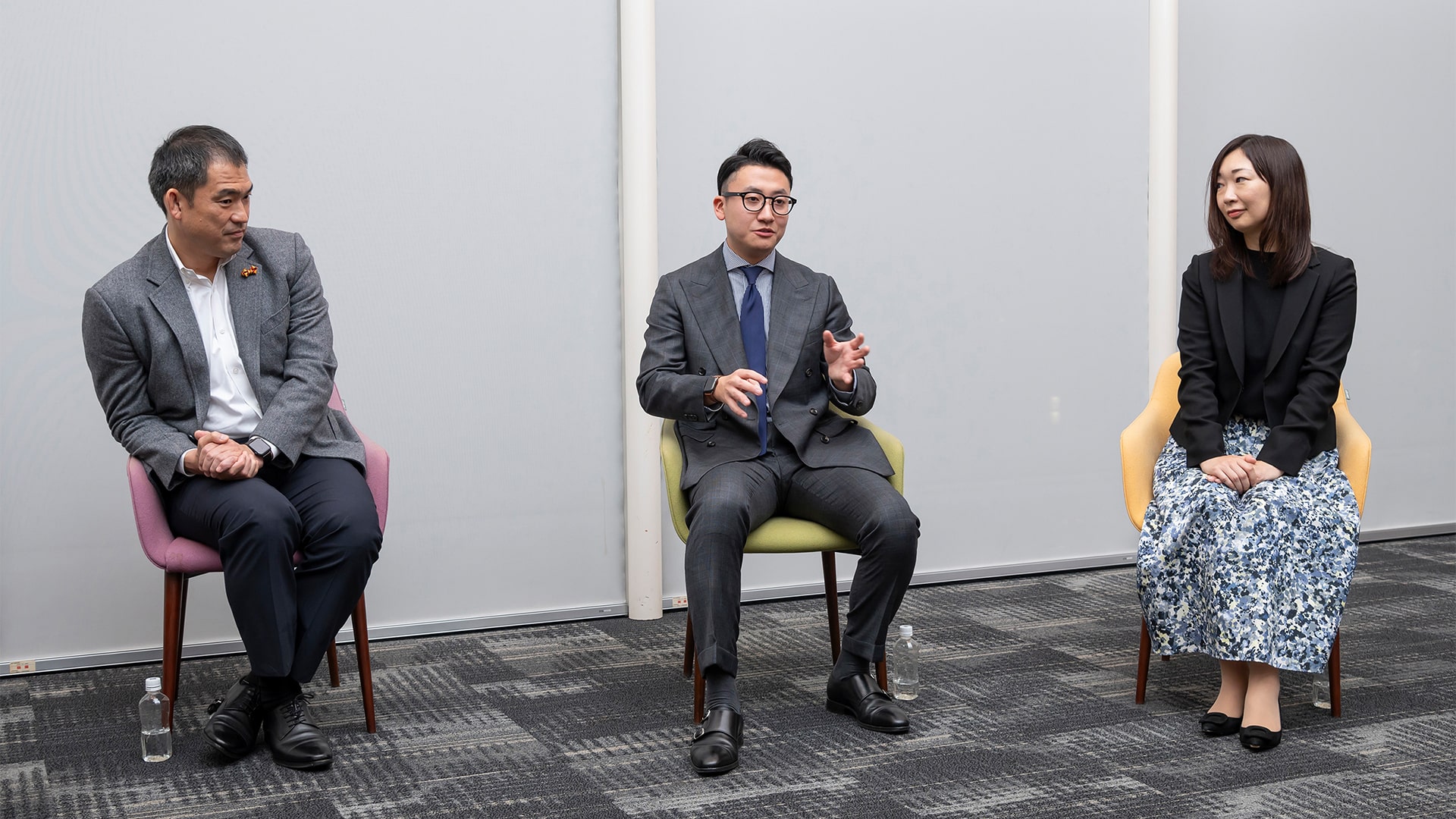
——Mr. Makanae, you're the youngest here, in just your fourth year with MC. Do you find it an easy company to work for?
Makanae I joined MC in April 2020, which was during the pandemic. At the time, we weren't able to come to the office, so I could only communicate via video calls or online chats, even with my instructor. It wasn't until my sixth month with the company that I was finally able to see who all my team members were. For that reason, I was very hesitant about saying anything to anyone unless I was asked first. Things went on that way for about a month, and then one day a senior colleague said to me, "Makanae-kun, if you continue keeping things to yourself, this is going to be a problem." It struck me then that even though I'd been full of enthusiasm when I joined the company, I'd kind of retreated into a shell, and I couldn't carry on that way. I realized that just because it was difficult to speak up or because I was a new employee, those were no reasons to just sit there and not say anything during meetings. So thereafter I started making a real effort to voice my concerns or thoughts, and I've discovered that MC is the kind of company where we can do that, and those voices are more than welcomed. What I'm conscious of now is providing my full value. Whether we're good at IT, English, or even trivial things like using Excel, we need to promote ourselves as best as we can. I'm also trying to add as much unique value to my work as possible, rather than simply doing it 100% as instructed.
——Are there ever times when you feel that you can't speak up, because you feel intimidated about your more experienced older colleauges knowing far more than you do?
Makanae Not at all. My boss often asks me for my opinion during meetings, and my remarks will sometimes kick off new discussions. My older colleagues have even expressed interest in my ideas because they're things that their generation never thought of. The fact that it's such an encouraging atmosphere has made me always come prepared with something to say, and I actually feel regret if I don't take advantage and do that. Fuji I joined MC in 2006, but I remember how my superiors would entrust me with certain jobs and how I was able to work on them in a carefree environment. At the time, I wanted to help launch a business to recycle precious metals, so I worked very hard to visit and negotiate with companies that disassembled products to extract the metals, conceive business ideas with partners engaged in the refinery processes, and so on. It was just a small operation, but I remember what an enjoyable experience it was to create a business that I had come up with. Inomata Our business acumen doesn't necessarily grow in proportion to our time on the job. When I observe Mr. Makanae and other young employees nowadays, I can see how they have some skills and ideas that far outstrip anything I'm capable of. How long employees have been with the company has no bearing on how willing I am to listen to their ideas or accept their work. Evaluating all employees' input equally can only benefit the organization and help it to succeed. Furthermore, if young employees see their ideas being used and leading to successes, they are bound to feel more confident, and the more confident they feel, the more both they and their organizations will grow.
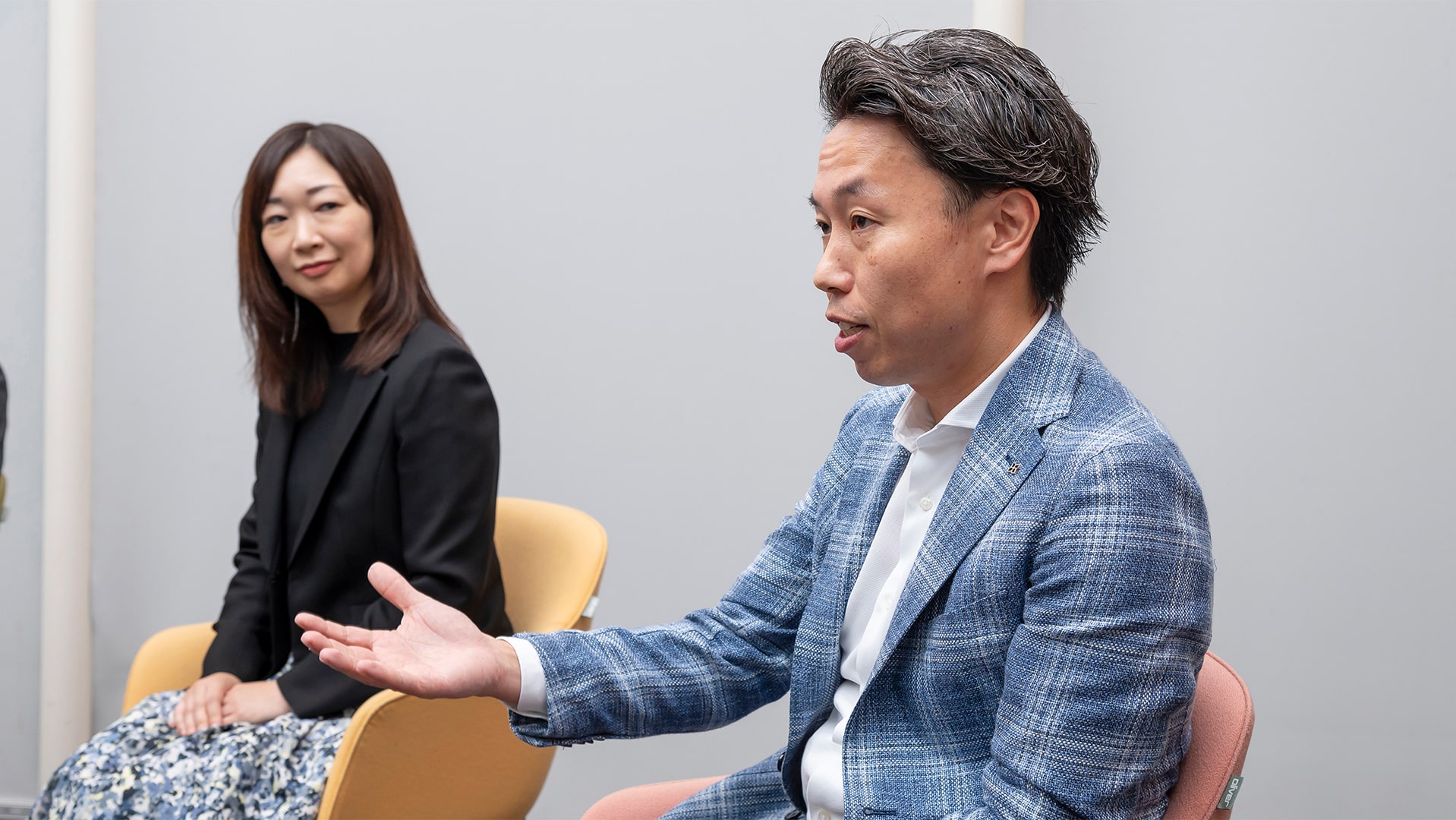
——Do you have anything else that you can share with job seekers out there, about why you enjoy working for MC?
Makanae We touched on this in the first half of our discussion, but one of the great things about MC is all of the opportunities to work outside Japan, plus the sheer scale of MC's operations is a big selling point I think. In a sense, the work being done by the Mineral Resources Group has put MC on the map, and it has even led to the creation of new villages and towns. Projects worth in the hundreds of millions are not unusual for our group. Inomata I agree. The massive scale of MC's projects really is what makes it so enjoyable to work here. What can be achieved with MC's know-how, networks, connections and capital is likely tens or even hundreds of times greater than what a single entrepreneur venture capitalist is capable of. Futhermore, I think a lot of people who apply for jobs at MC have dreams of rising to executive positions, but even if they don't go on to become someone as elite as say the company's president or CFO (Chief Financial Officer), they'll still have many opportunities for overseas secondments that will place them in similar positions of leadership. So I think the working environment at MC will be fascinating for those with those kinds of aspirations.
Never Hesitate, Even in the Face of Great Difficulty
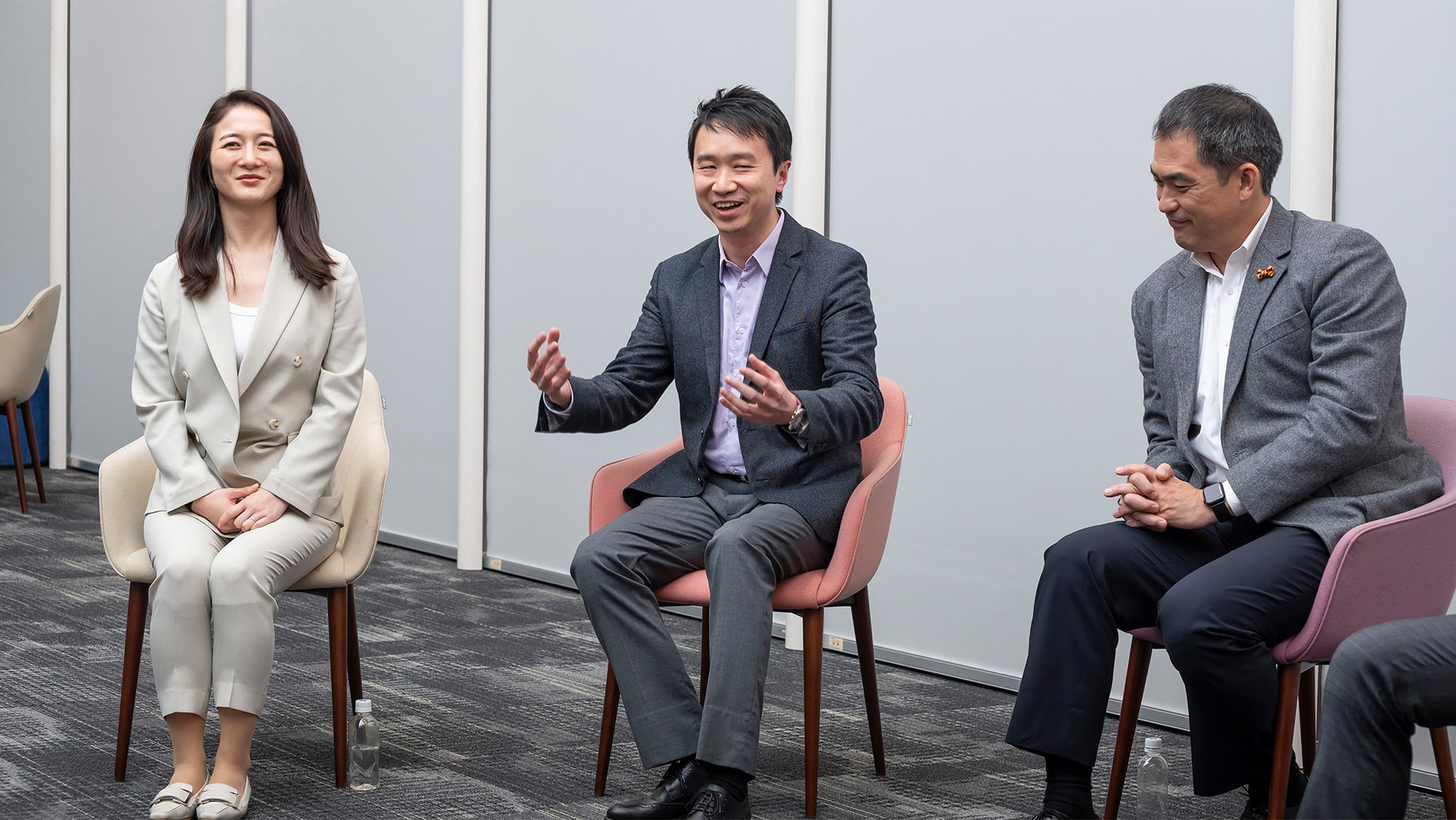
—— To conclude our discussion, I'd like to ask you to share your professional goals and dreams for the future.
Inomata My dreams have not changed since my job-hunting days, but one thing I'm determined to do is leverage the powers of business to help make our world a better place. There are many prosperity related indexes, but one of them is optionality; for example, having choices for things like food, clothing, housing, education and jobs. Temporary support measures can only go so far in providing impoverished people with those options. What's needed in their regions are employment opportunities through which they can give back to their local economies in sustainable ways, and it's businesses that have the power to make that happen. I want our resource projects to provide that optionality and create an affluent world, and through my own daily work, I want to both achieve personal growth and maximise the strengths of my team. Fuji Whether it was because I attended both elementary and high school abroad, I'm not sure, but ever since I began looking for work, my priority has been engaging with international partners for the benefit of Japanese industry. Nowadays, projects invested in both "Japanese and global industry" are growing in number, and I'd like to help further that momentum through our trading operations. Our work meets diverse customer needs and provides the world with supply stability in high value added resources. Right now I'm dealing in lithium, which is crucial to moves to decarbonize and electrify due to its uses in EV batteries and other clean-tech areas. It excites me to think that my work will continue to help MC make progress in energy transformations.
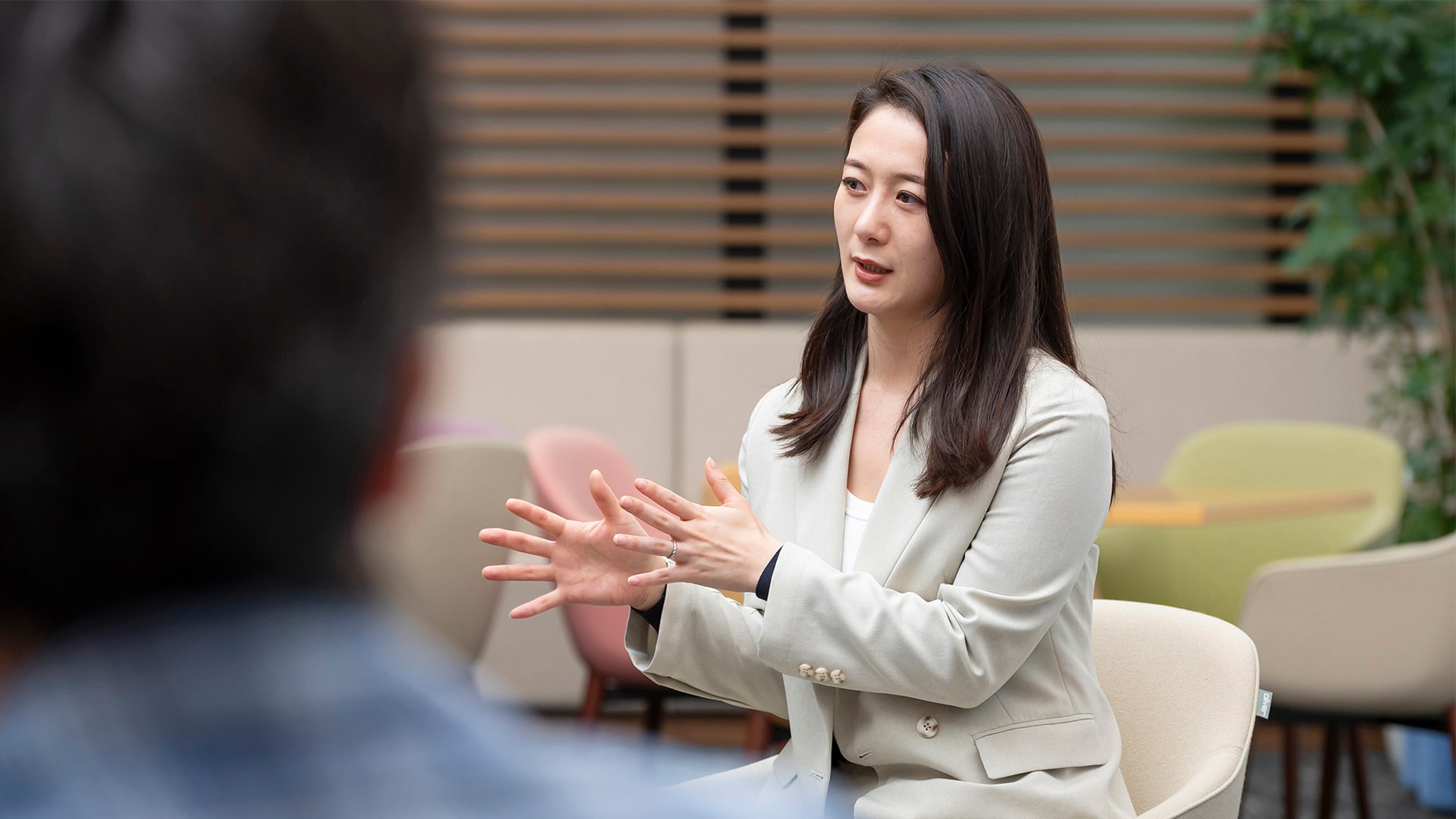
Kamachi I've also clung to the same dream since my job-hunting days. In my case, it's to help develop the world economy by creating businesses that are mutually beneficial to Japan and emerging countries. Right now I'm in charge of copper, the demand for which will likely grow in the coming years due to economic development in emerging countries and other parts of the world. Copper is also vital to decarbonization, as evidenced by electrification propelling demand for transmission cables, growth in the EV market, and so on. MC's copper-mine interests, such as the Escondida project in Chile, are among the world's largest copper mines, and their output meets a large percentage of global demand. That demand is only going to increase from here on, so determing how we'll be able to ensure a stable and sustainable supply of this metal is very important. I feel the weight of that responsibility every day. Also, MC is engaged in the full breadth of the copper value chain, from the mining and refinery operations, to recycling the metal from used products. I want to help identify promising businesses that will deepen connections between those internal interests, so that we can build win-win relationships throughout this value chain. I think that will also aid in the development of Japan, emerging economies, and indeed the world at large.
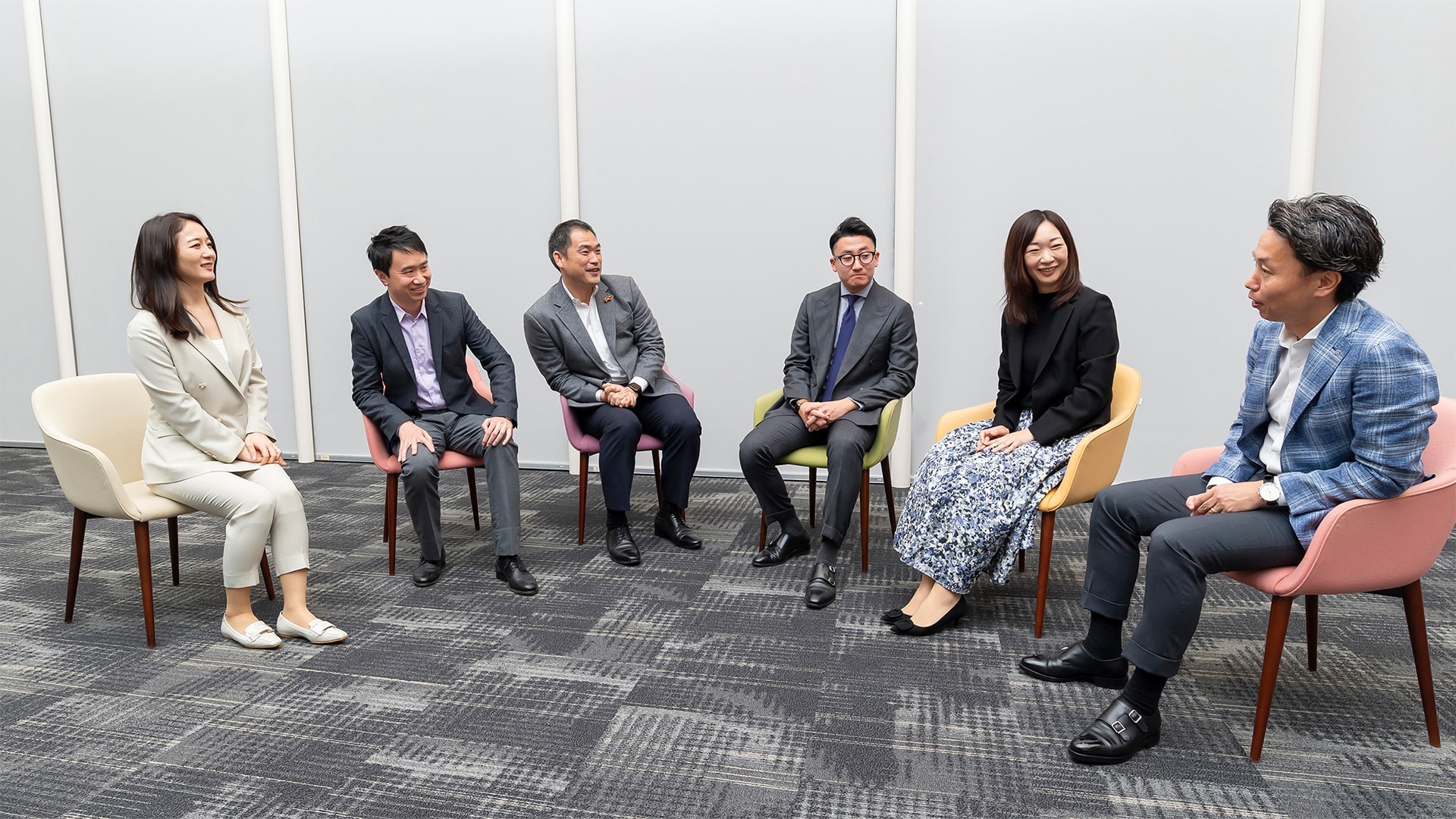
Makanae I want to do the kind of work that makes people count on me and appreciate that they relied on MC. I have come to realize that MC's organizational strength comes from its workforce, a pool of many diversely specialized individuals. That inspires me and makes me determined to become the kind of professional who can also demonstrate his own unique value. Deng I chose to work for a foreign company when I graduated from university because I wanted to have an international career. Then when I later transferred to MC, I did so because I knew it was a rare company that made its mark globally through good business ideas and sense. My dream now is to make my own mark in that very same environment, and I'm constantly looking for ways to do that. Kanno When I reflect back on my career, I'm reminded that it's been one struggle after another. I've been through some dramatic experiences, such as narrowly losing a bid for a large asset acquisition, and scrambling to recover credit from a customer that looked on the verge of bankruptcy. The reality is that such struggles are just part of business. I've been in a lot of tough spots and haven't always come out on top. In fact, most of the time, things ended in failure, but when I think about those times now, I know that they helped me to grow. I want MC's young and mid-career employees to have the courage to face challenges without hesitation, but with the knowledge that failures may be many but successes will be there too, waiting to be seized. I promise to give those employees my full support, and help make sure that the next generation inherits some very healthy businesses.
-
Building the Future with Diverse Talent vol.1
What is your current value?
Steeling Oneself on the Front Lines and Growing One's Sense of Mission -
Building the Future with Diverse Talent vol.2
Driven by Trust-based Relationships with Colleagues and Regional Communities
- Roundtable Discussion with Members of Mineral Resources Group (first half)- -
Building the Future with Diverse Talent vol.3
No Guaranteed Success in Business, but Diverse Experience Can Lead to Growth
- Roundtable Discussion with Members of Mineral Resources Group (Second half)-
